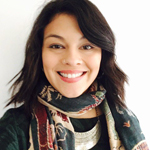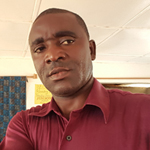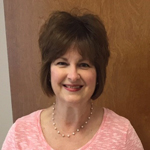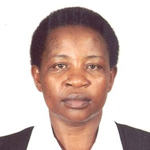Educators, and especially literacy educators, are uniquely positioned to be changemakers. Alongside tangible reading and writing skills, literacy educators can teach social awareness and critical reflection—powerful tools for personal and social change. These skills and mindsets empower children to question the world inside and outside their classrooms, to stretch their thinking and broaden their understandings, and to take action toward a more equitable society.
Although educators are the face of these conversations, they cannot lead positive change alone. To do this difficult work, they need support from scholars, administrators, and school-based specialists and professionals who are passionate, knowledgeable, and advocates for literacy. This is the focus of the International Literacy Association 2018 Conference, where research, policy, and practice will converge to deliver strategies for fostering positive change in literacy education.
As we gear up for ILA 2018 with its theme of Be a Changemaker, we want to know, “How do you define a changemaker in literacy education?” We posed this question to our Twitter community, and their responses gave us a window into what literacy education for a changing world looks like.
 “To me, being a changemaker means being mindful of my actions and understanding how interconnected our school community is to the world outside our gates. It means taking the time to understand and process the issues my children face and being supportive.” —Brianna Maxwell, third-grade teacher, China
“To me, being a changemaker means being mindful of my actions and understanding how interconnected our school community is to the world outside our gates. It means taking the time to understand and process the issues my children face and being supportive.” —Brianna Maxwell, third-grade teacher, China
“When reading a text about an African American boy whose father was put in prison for decades, I discussed with my students about breaking generational curses—poverty, addiction, incarceration, teenage pregnancy. It got real!” —Frankie Santoro, eighth-grade ELA teacher, North Carolina
 “A changemaker is that person who applies the acquired knowledge and skills or who initiates a new idea geared towards making a difference. To be a changemaker means to see a need and decide to respond to that need. In literacy circles, it means to apply the skills and knowledge we have acquired in our classrooms, neighborhoods, and communities to bring about a difference in developing the reading and writing skills of our children.” —Siaffa Korkoyah, president of Liberia Reads - Association of Literacy Educators, Liberia
“A changemaker is that person who applies the acquired knowledge and skills or who initiates a new idea geared towards making a difference. To be a changemaker means to see a need and decide to respond to that need. In literacy circles, it means to apply the skills and knowledge we have acquired in our classrooms, neighborhoods, and communities to bring about a difference in developing the reading and writing skills of our children.” —Siaffa Korkoyah, president of Liberia Reads - Association of Literacy Educators, Liberia
“Being a changemaker means being comfortable with asking tough questions, standing up for what is right, daring to be different, making mistakes, and believing that fighting the good fight is worth it!” —Kristin Rice, fourth-grade teacher, California
 “Literacy teachers ARE changemakers! We model it and expect it of ourselves, our students, and our colleagues. Literacy is ever-changing and ever-fulfilling. We must challenge ourselves, our students, and colleagues to continue pushing for literacy growth and a love of literacy for life, which definitely requires the attitude and heart of a changemaker.” —Mary Kramer, third-grade ELA teacher, Mississippi
“Literacy teachers ARE changemakers! We model it and expect it of ourselves, our students, and our colleagues. Literacy is ever-changing and ever-fulfilling. We must challenge ourselves, our students, and colleagues to continue pushing for literacy growth and a love of literacy for life, which definitely requires the attitude and heart of a changemaker.” —Mary Kramer, third-grade ELA teacher, Mississippi
“It means finding ways to help students become critical consumers of the waves of information available to them. Read, think, and intelligent responses through multiple means of expressions. Need to go way beyond reading and answering questions.” —Kimberly Kuhlman, reading specialist, Pennsylvania
 “Having the courage to do new, positive, creative, and beneficial activities for the benefit of your library users and colleagues or community at large.” —Muthoni Kibandi, university librarian, Kenya
“Having the courage to do new, positive, creative, and beneficial activities for the benefit of your library users and colleagues or community at large.” —Muthoni Kibandi, university librarian, Kenya
The ILA 2018 Conference, with the theme Be a Changemaker, will take place July 20–23 in Austin, TX. Learn more and register here.
Alina O’Donnell is the communications strategist at ILA and the editor of Literacy Daily.